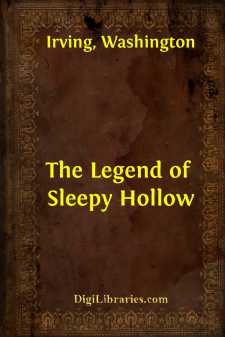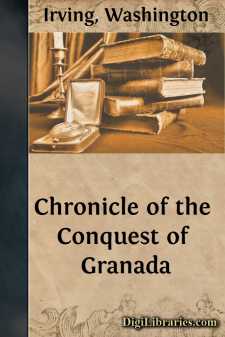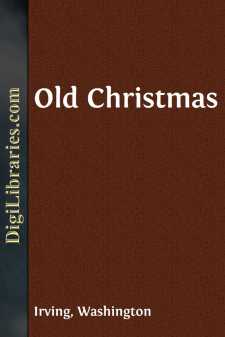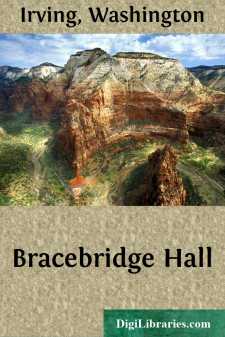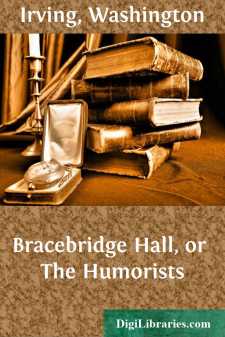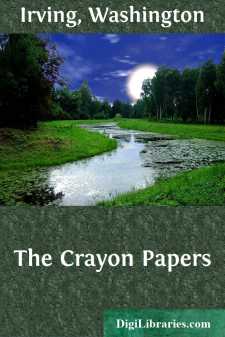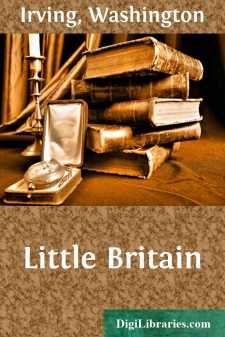Categories
- Antiques & Collectibles 13
- Architecture 36
- Art 48
- Bibles 22
- Biography & Autobiography 813
- Body, Mind & Spirit 142
- Business & Economics 28
- Children's Books 17
- Children's Fiction 14
- Computers 4
- Cooking 94
- Crafts & Hobbies 4
- Drama 346
- Education 46
- Family & Relationships 57
- Fiction 11829
- Games 19
- Gardening 17
- Health & Fitness 34
- History 1377
- House & Home 1
- Humor 147
- Juvenile Fiction 1873
- Juvenile Nonfiction 202
- Language Arts & Disciplines 88
- Law 16
- Literary Collections 686
- Literary Criticism 179
- Mathematics 13
- Medical 41
- Music 40
- Nature 179
- Non-Classifiable 1768
- Performing Arts 7
- Periodicals 1453
- Philosophy 64
- Photography 2
- Poetry 896
- Political Science 203
- Psychology 42
- Reference 154
- Religion 513
- Science 126
- Self-Help 84
- Social Science 81
- Sports & Recreation 34
- Study Aids 3
- Technology & Engineering 59
- Transportation 23
- Travel 463
- True Crime 29
Washington Irving
Washington Irving was an American author and diplomat born on April 3, 1783, best known for his short stories "Rip Van Winkle" and "The Legend of Sleepy Hollow." He played a significant role in establishing a distinctly American literary style in the early 19th century. Irving's works were influential in both the United States and Europe, earning him a prominent place in the history of American literature.
Author's Books:
Sort by:
In the bosom of one of those spacious coves which indent the eastern shore of the Hudson, at that broad expansion of the river denominated by the ancient Dutch navigators the Tappan Zee, and where they always prudently shortened sail and implored the protection of St. Nicholas when they crossed, there lies a small market town or rural port, which by some is called Greensburgh, but which is more...
more...
CHAPTER I. GENEALOGY OF THE WASHINGTON FAMILY. The Washington family is of an ancient English stock, the genealogy of which has been traced up to the century immediately succeeding the Conquest. At that time it was in possession of landed estates and manorial privileges in the county of Durham, such as were enjoyed only by those, or their descendants, who had come over from Normandy with the Conqueror,...
more...
INTRODUCTION. Although the following Chronicle bears the name of the venerable Fray Antonio Agapida, it is rather a superstructure reared upon the fragments which remain of his work. It may be asked, Who is this same Agapida, who is cited with such deference, yet whose name is not to be found in any of the catalogues of Spanish authors? The question is hard to answer. He appears to have been one of the...
more...
Christmas There is nothing in England that exercises a more delightful spell over my imagination than the lingerings of the holiday customs and rural games of former times. They recall the pictures my fancy used to draw in the May morning of life, when as yet I only knew the world through books, and believed it to be all that poets had painted it; and they bring with them the flavour of those honest...
more...
THE HALL. The ancientest house, and the best for housekeeping in this county or the next, and though the master of it write but squire, I know no lord like him. MERRY BEGGARS. The reader, if he has perused the volumes of the Sketch Book, will probably recollect something of the Bracebridge family, with which I once passed a Christmas. I am now on another visit at the Hall, having been invited to a...
more...
THE HALL. The ancient house, and the best for housekeeping in this county or the next; and though the master of it write but squire, I know no lord like him. —Merry Beggars. The reader, if he has perused the volumes of the Sketch-Book, will probably recollect something of the Bracebridge family, with which I once passed a Christmas. I am now on another visit to the Hall, having been invited to a...
more...
AUTHOR'S INTRODUCTION IN THE COURSE of occasional visits to Canada many years since, I became intimately acquainted with some of the principal partners of the great Northwest Fur Company, who at that time lived in genial style at Montreal, and kept almost open house for the stranger. At their hospitable boards I occasionally met with partners, and clerks, and hardy fur traders from the interior...
more...
MOUNTJOY OR SOME PASSAGES OUT OF THE LIFE OF A CASTLE-BUILDER I was born among romantic scenery, in one of the wildest parts of the Hudson, which at that time was not so thickly settled as at present. My father was descended from one of the old Huguenot families that came over to this country on the revocation of the edict of Nantz. He lived in a style of easy, rural independence, on a patrimonial...
more...
In the centre of the great city of London lies a small neighborhood, consisting of a cluster of narrow streets and courts, of very venerable and debilitated houses, which goes by the name of LITTLE BRITAIN. Christ Church School and St. Bartholomew's Hospital bound it on the west; Smithfield and Long Lane on the north; Aldersgate Street, like an arm of the sea, divides it from the eastern part of...
more...
CHAPTER I.BW.—HB. The Washington family is of an ancient English stock, the genealogy of which has been traced up to the century immediately succeeding the Conquest. Among the knights and barons who served under the Count Palatine, Bishop of Durham, to whom William the Conqueror had granted that important See, was W H. At that period surnames were commonly derived from castles or estates; and de...
more...


